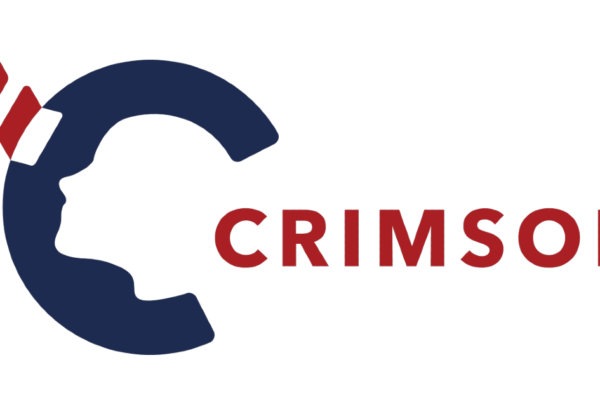新华每日电讯
我国打出“组合拳”力促教育公平和青少年全面发展
9/05/2021
新华社上海9月4日电(记者王婧媛、岳夕彤、许晓青)中国于近几周打出“组合拳”,进一步减轻学生课业负担、加强对校外培训机构的规范、调节并限制未成年人网络游戏时间。专业人士认为,这将提升教育体系的公平性,进一步确保中国青少年全面发展。
多年来,中国学生大多面临着超负荷的课业压力,近视、睡眠不足、体质欠佳等情况并不鲜见,引起全社会关注。
过去几年间,全国多地随处可见营利性校外补习班的巨幅广告及其教学点。新冠肺炎疫情暴发后,“补课产业链”依然在网上盛行,规模迅速膨胀。这在给学生加压的同时,也给家长带来更重经济负担。
校外补习的恶性竞争加剧了教育不平等,甚至从家长的焦虑中榨取价值。有些家长为此大把花钱,一些大城市的家庭,每月在孩子校外补习上花费的费用已超过对食品和日常生活用品的消费总额。
为回应社会关切,中国推行一系列新举措,力争在一年内有效减轻学生课业负担和家长经济压力,在三年内取得显著成效。
7月,中共中央办公厅、国务院办公厅印发《关于进一步减轻义务教育阶段学生作业负担和校外培训负担的意见》,部署学校重新调整作业总量,改进课堂教学,开展课后延时服务,满足学生个性化的需求。
与此同时,相关法规也加强对校外培训机构的规范,各地不再登记新的面向义务教育阶段学生的学科类校外培训机构,现有学科类培训机构统一登记为非营利性机构。
专家认为,校外培训愈演愈烈,不仅扰乱课堂教育,同时加大了教育不平等。北京师范大学教授顾明远表示,此次新规实施是推动学生全面发展的关键一步。
各地教育部门迅速响应。上海出台细则,提出确保小学一、二年级不布置家庭书面作业,小学三至五年级书面作业平均完成时间不超过60分钟。部分学校还将五子棋、魔术等社团活动引入放学后的服务时间。
在上海,华东理工大学附属小学已调整课程表,优化课程设计。“如果能通过做两道题让学生掌握知识,就不再出四道题。相信坚持下去,学生在校内的收获不减反增。”教师蔡国英说。
开学第一天,该校四年级学生魏致浩和其他40多名同学一起参加了“水育兴趣课”,自己动手搭建“海绵城市”实验模型,体验完成一次污水过滤,他和同学都饶有兴味。
中国教育科学研究院研究员储朝晖认为,一系列新举措旨在提高校内教育的效能,根据学生需求,因材施教,教师可适当增加课后服务;同时在评价体系中,扭转“唯分数”“唯升学”的教育评价导向,这是面向未来培育人才的必由之路。
为兼顾提升教育质量和增强教育公平,北京市还拟推行校长和教师在学校间的交流轮岗,确保学生能够平等享受高质量教育资源。
减负同时,部分家长担心孩子会在课后花更多时间打游戏。
中国于本周发布的一条防止未成年人沉迷网络游戏的新规,回应家长的关切,进一步确保未成年人在课外生活中健康成长。
这条“史上最严”的监管令明确规定,网络游戏企业仅可在周五、周六、周日和法定节假日每日20时至21时向未成年人提供1小时服务,其他时间均不得以任何形式向未成年人提供网络游戏服务;严格落实网络游戏用户账号实名注册和登录要求,不得以任何形式向未实名注册和登录的用户提供游戏服务。
北京青少年法律援助与研究中心主任佟丽华称,部分未成年人每天在线游戏时长超过10小时,甚至有未成年人连续打游戏38小时,从个人到家庭,再到社会,网游沉迷的潜在危害将逐步发酵。
上海体育学院副教授戴炎淼认为,出台“网游限时令”,将防止未成年人沉迷网络的手段提到前所未有的高度,一方面体现出对未成年群体“屏幕行为”的重点干预,另一方面也是为游戏产业构筑更绿色健康、更可持续发展的用户基础。
戴炎淼认为,资本及相关产业链,不能依靠“诱捕低龄群体”来单向度追求自身利益最大化,政府出台系列举措既贯彻“青少年保护”意图,又引导相关产业在合理区间运营并承担相应的社会责任。
中国政府一贯重视青少年发展,这体现在国家和地方法律法规及“十四五”规划中。专家指出,已出台的政策是一套“组合拳”,还包括对影响青少年身心健康的“饭圈”文化的治理,这体现了综合治理的意图。
(参与采写:王笛、吉晓东、胡浩、洪泽华、顾煜)
China Focus: China takes multi-pronged measures to boost education equality, youth development
Source: Xinhua
9/03/2021
BEIJING, Sept. 3 (Xinhua) — China has taken measures in recent weeks to reduce the heavy workload of students, tighten the limits on online gaming and rein in raucous celebrity culture, in an effort to promote fairness in its competitive education system and ensure the well-rounded development of young people.
For many years, Chinese students faced the issue of excessive workloads, leading to the increased incidence of myopia, sleep deprivation and substandard fitness that worry many parents.
Surveys have shown that roughly 67 percent of Chinese students did not meet the standard number of sleeping hours recommended by the education authority, while about 53 percent have developed myopia.
To make things worse, off-campus tutoring driven by profit has exploded in recent years, exacerbating the academic burden on children and aggravating the financial burden on parents. The “rat race” of private tutoring has widened education inequality, feeding off the anxiety of parents who are willing to fork out 200 yuan (about 31 U.S. dollars) or more for a 45-minute tutoring class to help their kids score high in tests.
In response to society’s growing concerns regarding the issue, China has initiated an education overhaul across the country, pledging to effectively ease the academic burden on students and reduce the financial burden on parents over the course of a year, with notable progress to be seen within three years.
A set of guidelines issued in July called on schools to recalibrate homework assignments, improve their classroom teaching and develop after-class services to meet students’ individualized demands.
At the same time, the document strengthened regulations regarding off-campus institutions, stopping approving new off-campus, curriculum subject-tutoring institutions for students in compulsory education.
“The free-wheeling growth of off-campus tutoring has not only disrupted in-school education but also expanded education inequality,” said Gu Mingyuan, a professor at Beijing Normal University, lauding the move as a crucial step toward the better all-round development of students.
Local education departments have responded quickly. Shanghai has introduced detailed regulations to ensure that first- and second-graders don’t have paper assignments, and higher graders at the primary school can finish their homework within an hour. Various club activities, such as chess and magic, have been included into after-class services at school.
Other cities have also taken concrete measures to improve educational quality and equality. Beijing will promote the rotation of principals and teachers among schools to encourage equitable access to high-quality education resources.
Liu Chunyan, the mother of a pupil in the southern city of Guangzhou, feels relieved that her son will have less homework and more leisure time in the new semester.
Some parents have mixed feelings about the changes. “I used to worry that, as the study pressure is relieved, my child would spend more time playing video games after school,” said Hou Jinxiang, the father of a fourth grader in Hami, in northwest China’s Xinjiang Uygur Autonomous Region.
A regulation targeting online-gaming addiction released this week tackles the issue, further protecting minors’ healthy growth during extracurricular life.
The “strictest-ever” regulations stipulate that online-game providers can only offer one hour of services to minors from 8 p.m. to 9 p.m. on Fridays, Saturdays, Sundays and public holidays, while demanding real-name registration and logins.
China has roughly 158 million internet users aged between six and 19. A research report on internet usage by minors in 2020 revealed that “more than 60 percent of underage netizens frequently play games online.”
Tong Lihua, director of the Beijing Children’s Legal Aid and Research Center, warned of the adverse effects brought about by online-gaming addiction to kids, including harm to their physical and mental health, as well as their academic performance that will sometimes lead to soured child-parent relations and even potential youth crime.
The Chinese government has attached great importance to the development of young people. It has also promulgated regulations targeting undesirable tendencies in celebrity culture and malpractice in fandom activities that have warped teenagers’ values and exerted a negative influence on their physical and mental health.
Minors are banned from joining the costly campaigns of pop stars, and restricted from taking part in pop star competition votes, the Office of the Central Cyberspace Affairs Commission said in a statement, adding that online gatherings of fan groups should not target minors.
Internet platforms are also required to tighten supervision on their contents, such as removing posts involving bickering and defamation between rival fan clubs, and closing accounts that violate rules.




